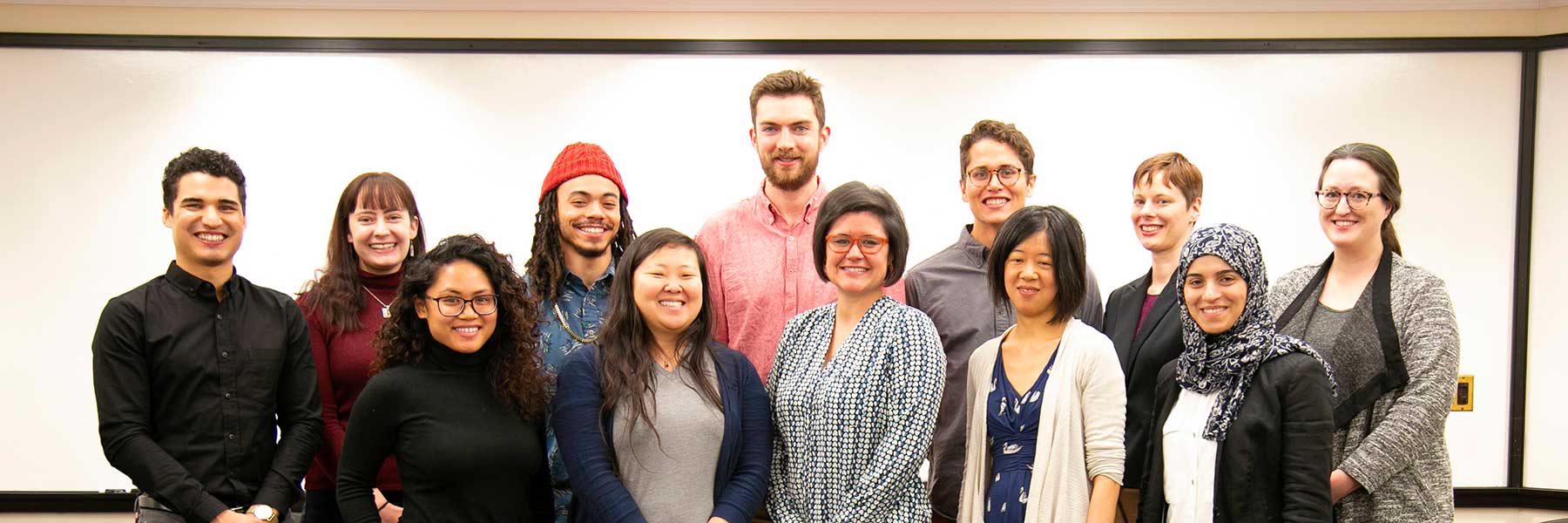Community Engaged Course Design Workshop
The Community Engaged Course Design Workshop (previously named the Engaged Pedagogy Initiative) is a semester-long professional development workshop for graduate students in any field interested in teaching a community engaged learning course.
During the program, students explore the theoretical foundations, ethical implications, and practice of community engaged teaching in order to design a course rooted in their field of study for undergraduates to participate in community engaged learning.

The Community Engaged Course Design Workshop is a partnership sponsored and facilitated by the Edward Ginsberg Center and the Rackham Program in Public Scholarship that meets our respective missions by promoting excellence in community engaged learning and graduate student professional development. The program counts towards LSA’s training requirements for graduate students serving as instructors of record.
The syllabi students develop center on community engaged teaching, with instructors and undergraduates partnering with local organizations, community groups, and K–12 educators to develop courses that connect with communities.
Community engaged courses designed by students in the program vary in discipline, time period, and geographic region. Examples include the following:
- From Power and Powerlessness in Classical Greece: Modern Approaches to Inequality in the Ancient World
- Energy Justice and Activism: Community Engagement in the Age of Climate Change
Course projects have included creating teaching modules for K–12 teachers, and partnerships with local organizations. These include Detroit’s Oakland Avenue Urban Farm to study and contribute to the participatory processes of land stewardship in the context of a community garden, and 826michigan to work with elementary school students to develop their creative writing.
How to Participate
Graduate students are selected through a competitive application process. Applications for the winter 2025 term have closed, but this page will be updated when then next application cycle opens.
For questions, please contact the Rackham Program in Public Scholarship.
Program Components
Participants will be able to:
- work within a cross campus, interdisciplinary cohort;
- participate in hands-on workshops throughout the semester;
- apply effective community engaged course design principles and theories to practice;
- meet with existing U-M community partners to discuss the ethics of community engaged learning;
- receive course design feedback from current students and learn from student perspectives on teaching strategies;
- benefit from individual course design consultations with staff;
- develop a discipline-specific community engaged course.
Upon Completion
Upon successful completion of all program requirements, students will be able to:
- use the workshop to satisfy Requirement B (“Learning About Teaching”) for the Center for Research on Learning and Teaching (CRLT) Graduate Teaching Certificate;
- be eligible to compete to teach their community engaged course in U-M’s Residential College during the winter term;
- apply to become a Ginsberg Graduate Consultant with the Ginsberg Center;
- have a syllabus to use on the academic job market and for future teaching.
Winter 2025 Workshop Dates
The workshop is being planned as an in-person program. Students must be able to attend sessions on campus to participate. Students must attend mandatory Friday workshop sessions from 10:00 a.m. to 12:00 p.m, held in the Rackham Building.
- January 10
- January 17
- January 31
- February 14
- February 28
- March 14
- March 28
- April 11
- April 25
Contact the Program in Public Scholarship
1530 Rackham Building
915 E. Washington St.
Ann Arbor, MI 48109-1070
Email: rackpublicscholarship@umich.edu
Hours
The Program in Public Scholarship is open Monday through Friday, 8:00 a.m. to 5:00 p.m.
The office is closed Saturdays and Sundays and on the following holidays: Thanksgiving (Thursday and the following Friday), Christmas through New Year’s, Memorial Day, Independence Day (July 4), and Labor Day.

